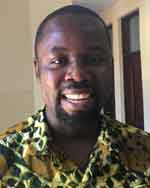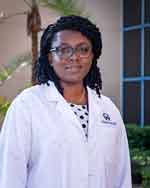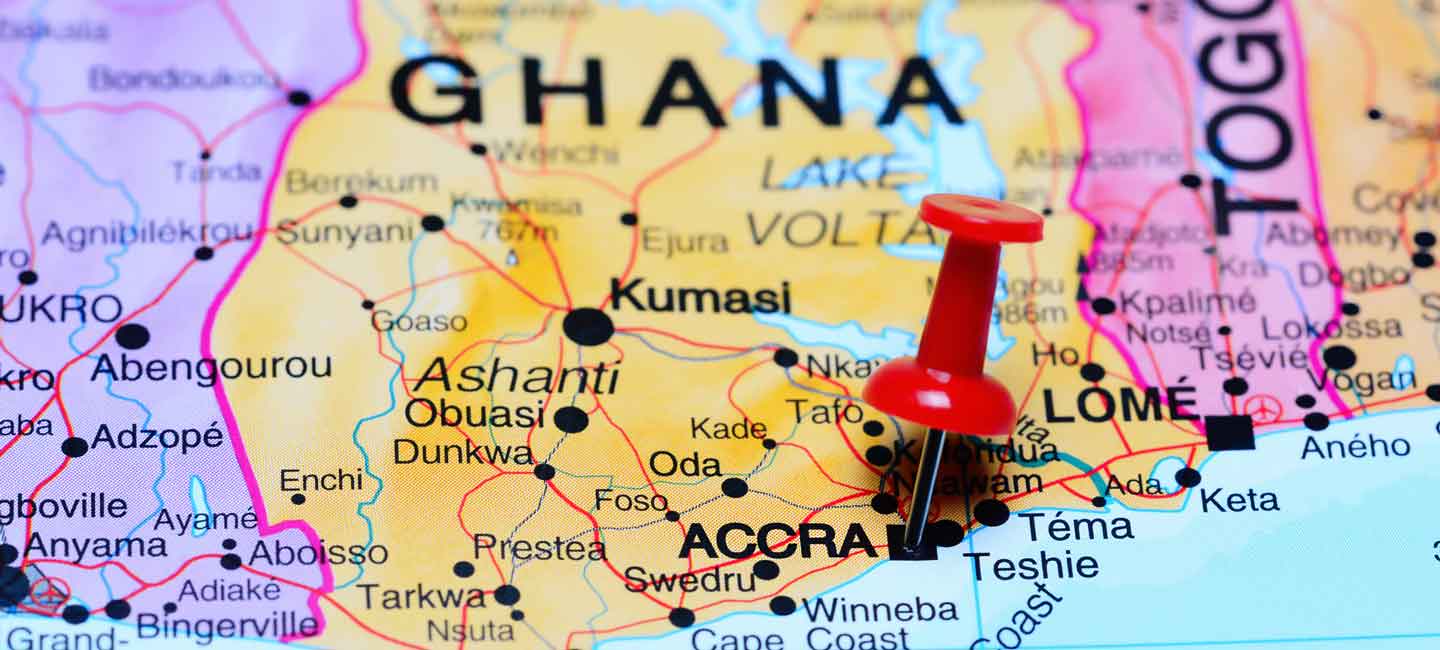Two Blaze Trail from Ghana to Moffitt
For progress to be made, someone has to go first.
Francis Asamoah, MD, was the trailblazer for Ghana’s collaborative efforts with Moffitt Cancer Center. While still a resident at the Ghana College of Physicians and Surgeons, Asamoah came to Tampa in 2018 to work and learn in the laboratory of Dr. Kosj Yamoah, whose interest in the roots of prostate cancer spans two continents.
The two met through Yamoah’s frequent visits to Ghana and the Korle Bu Teaching Hospital where Asamoah works. “I tagged along on some of his research work with prostate cancer,” said Asamoah, “and that led to my initial research fellowship in his lab. Following that, we had a publication that we thought necessitated that I do some clinical work investigating the use of brachytherapy to help our National Radiotherapy Oncology and Nuclear Medicine Centre improve the outcomes of the patients we see here in Ghana. That led to the decision to pursue a second year of fellowship at Moffitt.”
Asamoah said spending two years at Moffitt was “an eye-opening experience, on many fronts,” starting with the clinical treatment options available to patients in the U.S. “Here in Ghana, resources are never enough,” noted Asamoah. “Seeing what interventions are available out there and the outcomes that are being derived out of that; how much technology, innovation, caregiver time and facility time goes into these outcomes that we read about in publications has been a great eye-opener. And it encourages me to do a bit more for my patients in terms of how much effort I really put in it.”

In Ghana, oncologists are the “go-to” experts for all types of cancer, “anything from the crown of their head to the sole of their feet,” Asamoah explained. They provide systemic treatments like chemotherapy, targeted drugs or hormonal therapy. They also direct radiation therapy, including brachytherapy in which seeds or pellets containing radioactive material are surgically implanted to kill cancer cells and shrink tumors. The National Radiotherapy Oncology and Nuclear Medicine Centre recently acquired new technology that will allow greater use of more sophisticated brachytherapy approaches like those Asamoah saw at Moffitt.
“Getting the opportunity to have hands-on exposure to various brachytherapy techniques for multiple disease sites — head and neck cancers, sarcomas, prostate, gynecological and some skin cancers — also opens up options to use our scarce resources differently in Ghana,” said Asamoah. “If it’s possible to move some patients from external beam radiation treatment and get comparable outcomes with brachytherapy, and therefore be able to reduce the wait times of patients who would need to have external beam treatment, I think that’s something that we can explore a bit more.”
As Asamoah was wrapping up his Moffitt fellowships in 2019, a second Ghana trailblazer arrived on the Tampa campus. The trailblazer, Hannah Ayettey Anie, MD, has strong family connections to medicine. Her father, the Rev. Professor Andrews Seth Ayettey, has a MBcHB from the University of Ghana Medical School and a PhD from Cambridge University and serves as a professor at the University of Ghana. The former dean of its medical school has taught anatomy to many of the nation’s professionals, including Asamoah and Yamoah. Ayettey Anie was a medical student studying anatomy when she first met Yamoah while he was a teaching assistant in the cadaver dissection lab. Years later, when their paths crossed again at Korle Bu Teaching Hospital, Yamoah suggested Ayettey Anie visit Moffitt to work and learn in his lab.

That opportunity became a reality in April of 2019, when Ayettey Anie traveled to Tampa through Moffitt’s Academic Visiting Scholar program. In addition to shadowing Moffitt physicians as they treated patients with a variety of cancers, she would split her time between Yamoah’s lab and the DeBartolo Family Personalized Medicine Institute at Moffitt.
For Ayettey Anie, who has an interest in genetics, it was a perfect fit. “I have a lot of interest in targeted therapies,” she said. “I saw next-generation sequencing, analysis, results coming in for different mutations and tumor mutational burden for patients referred from Moffitt to the personalized medicine team. That way, I could actually see what kind of somatic mutations these patients had, and what line of treatment the physician pharmacists group was proposing based on those results.”
Being able to tailor treatments based on genetic information in native African, as well as African American, patients is a goal Ayettey Anie shares with the rest of the Ghana/Moffitt collaborative. She knows it will require collaborative research, and she was happy to learn more about how clinical research trials are set up and run. “The unique thing was seeing the randomization being done firsthand, trials being organized there and then. Seeing the process with its challenges and setbacks was interesting and very enlightening.
“I had a few discussions with people about the possibility of Ghana being part of multicenter clinical trials. The feedback was that it may be difficult at this time, with all the requirements. In Africa, sometimes we don’t meet all their criteria,” she explained. “For most of these big trials, where we in Africa have a huge patient population with cancers at almost any stage, it would be wonderful. The patients would benefit from free drugs while on these trials. We could learn a lot more; the trials can publish data not only on the African American population, but also on the African population. And I think that will help us really determine which therapies are beneficial to our patients.”
Ayettey Anie is also the faculty secretary for radiology, radiotherapy and oncology at the Ghana College of Physicians and Surgeons, the prime trainer of Ghana residents before their final fellowship examination. “It puts me in a very good position to be able to open more discussions forward for more people to experience what I have at Moffitt. So, I think this has been a very fruitful experience and also one that will help strengthen the Moffitt/Ghana collaboration. I’m sure it will open wider doors in the future.”


